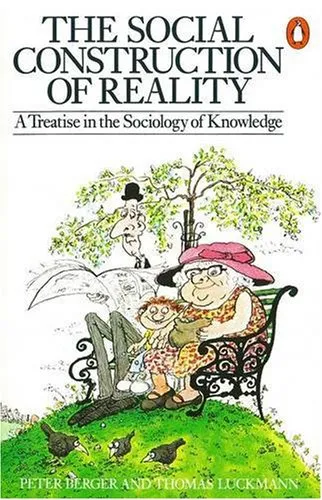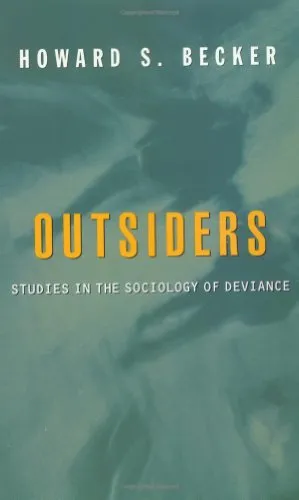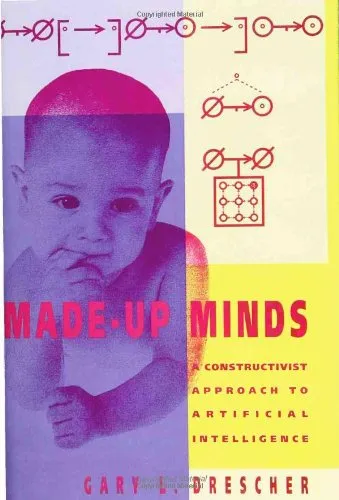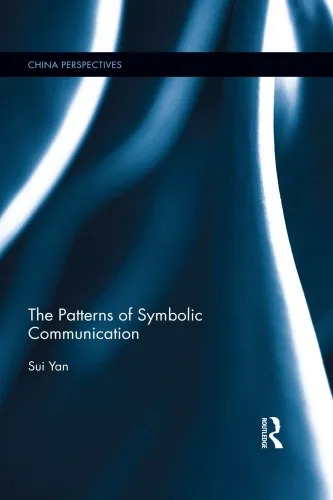The Social Construction of Reality: A Treatise in the Sociology of Knowledge (Penguin Social Sciences)
4.5
Reviews from our users

You Can Ask your questions from this book's AI after Login
Each download or ask from book AI costs 2 points. To earn more free points, please visit the Points Guide Page and complete some valuable actions.Related Refrences:
Introduction to 'The Social Construction of Reality'
Authored by Peter L. Berger and Thomas Luckmann, 'The Social Construction of Reality: A Treatise in the Sociology of Knowledge' is a seminal work that explores the intricate processes by which human beings create meaning and construct reality through social interactions. Published in 1966, this groundbreaking text remains pivotal in the field of sociology and has influenced a broad spectrum of social sciences including sociology, sociology of knowledge, and philosophy.
The core premise of the book is that reality is not directly experienced but is constructed and maintained through language, culture, and societal structures. It challenges previously held notions of objective reality by arguing that what we perceive as reality is a construct stemming from social agreement and practices.
Detailed Summary of the Book
The book begins by grounding itself in the sociology of knowledge, a field that examines the relationship between human thought and the social context within which it arises. Berger and Luckmann propose that "knowledge" is a social construct, emphasizing that all understanding is contingent upon historical and cultural contexts.
In the first section, they delve into the processes of externalization, objectivation, and internalization. These processes describe how human beings project their subjective experiences into the world (externalization), these projections taking on a life of their own (objectivation), and then this objective reality getting re-absorbed into individuals' consciousness (internalization).
The book then explores the role of language as a critical tool in the construction of reality, explaining how it serves as both a system and a transmitter of knowledge, thus allowing subjective meanings to be shared and maintained across broader societal contexts.
Further chapters examine institutions as stabilizing elements within the social world, where habitualized actions of individuals solidify into predictable patterns that guide and constrain human behavior, demonstrating how micro-level processes influence macro-level structures.
Key Takeaways
- Reality is socially constructed through interactions, culture, and historical contexts, rather than being solely an objective entity.
- The processes of externalization, objectivation, and internalization are central to understanding the construction of reality.
- Language plays a critical role in shaping our understanding of reality, acting as a vehicle for knowledge transmission.
- Social institutions maintain and legitimize constructs of reality, influencing human behaviors and societal norms.
Famous Quotes from the Book
"The reality of everyday life is not only filled with order, it is ordered."
- Peter L. Berger & Thomas Luckmann
"Society is a human product. Society is an objective reality. Man is a social product."
- Peter L. Berger & Thomas Luckmann
Why This Book Matters
'The Social Construction of Reality' matters because it fundamentally alters our understanding of how reality is perceived and created. Unlike earlier theories that treated knowledge and reality as fixed entities, this book introduces the idea that our perceptions are molded by societal structures and cultural narratives. It encourages readers to question the taken-for-granted assumptions that govern their lives and invites a deeper investigation into the social forces that shape human experience.
This text is instrumental for scholars, students, and anyone interested in sociology, psychology, or the broader social sciences. Its insights are foundational for topics like identity formation, institutional analysis, and cultural studies, while its theoretical framework offers tools to analyze modern challenges related to social media, globalization, and cultural change.
Free Direct Download
Get Free Access to Download this and other Thousands of Books (Join Now)
For read this book you need PDF Reader Software like Foxit Reader





